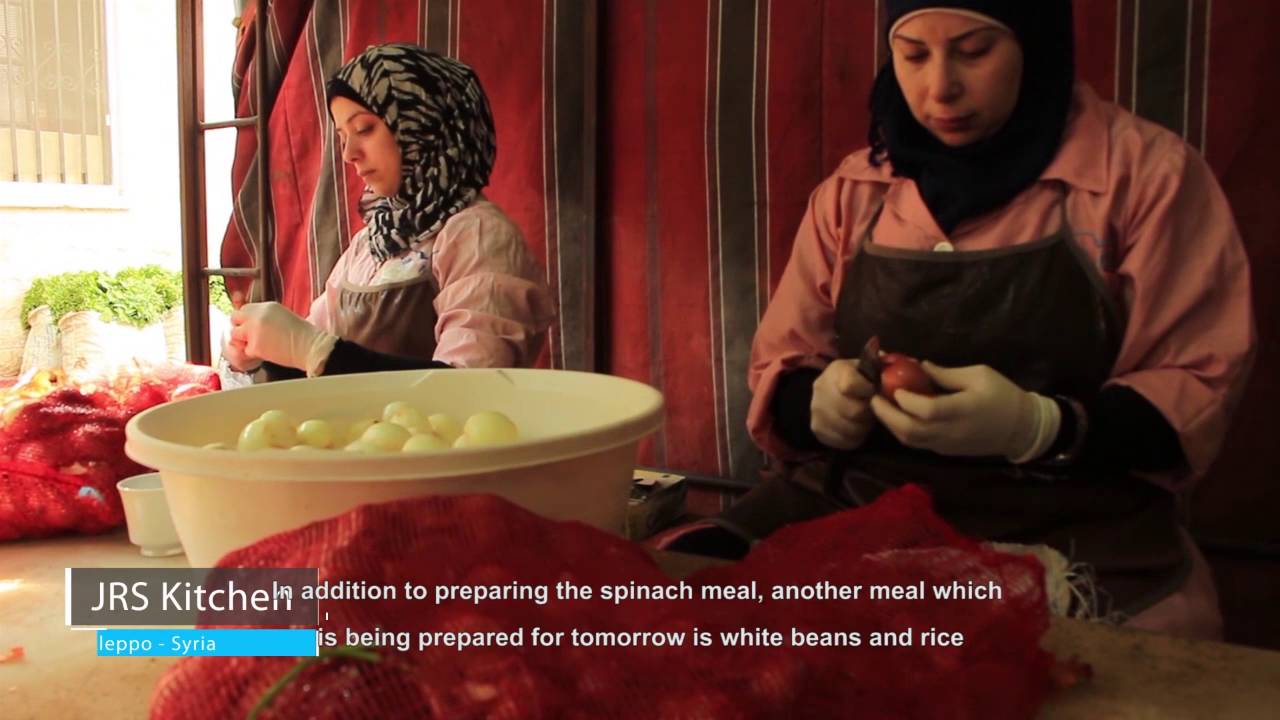The Jesuit Refugee Service JRS
With uninterrupted violence and conflict, approximately 6.5 million people are internally displaced in Syria. An estimated 2.8 million of them are children. According to UNICEF, more than 80 per cent of Syria’s child population have been affected either in Syria or as refugees in neighbouring countries.
The city of Aleppo is subdivided into districts assigned to different local humanitarian actors. The Jesuit Refugee Services (JRS) became responsible for a critical and highly populated area, located in the centre of the city. Aleppo « safe » zones are highly overcrowded with internally displaced people. All the safe zones, including the zone JRS is responsible for, partially border a friction zone. Hundreds of non-governmental organizations stand ready to respond to the humanitarian crisis, yet a relatively small number are allowed to operate. The Jesuits are among the very few agencies serving displaced people at the heart of Aleppo and Damascus. The Jesuits had been there long before the conflict – now in its sixth year – began, and are respected and recognized for being nonpartisan.
The key areas of work of our partner JRS are :
Health
Specialized services and the provision of secondary health care are rarely covered by humanitarian agencies. Emergency obstetric care and safe delivery services are scarce. Furthermore, girls marry at a young age, many even younger than 15. This demographic is at increased risk of mental health issues and maternal and child mortality. JRS provides healthcare consultations, medication and referrals to paediatric, prenatal and gynaecology services; provides or covers the costs of therapy, medication and follow-up of laboratory tests; distributes wheelchairs and fits orthotic limbs. The JRS clinic has a supervised play area with drawing materials and toys where they also offer psychosocial support for children.
Sanitation
Syria’s Integrated Needs Assessment (SINA) reported high incidence of diarrhoea in children, skin disease, yeast infections in women, stomach inflammations and kidney diseases. As part of Emergency support, and to combat these diseases, JRS distributes hygiene kits (including diapers for babies, sanitary pads for women, and diapers for elderly people with incontinence and for people with special needs).
Education
In addition to offering services for these basic needs, the Jesuits also have several psychosocial programs and offer formal and informal education from pre-school to college for Syrian children and youth inside Syria as well as in Lebanon and Jordan.
JRS Lebanon is running three schools for Syrian refugee children : Zahrat el Adab, Nour I and Nour II, and Baalbek, in the Bekaa Valley.
Besides providing a full curriculum in education, JRS has also identified the need to provide a morning snack for all children (as they were coming to school on an empty stomach), a social worker for each school, and transport for those who live far from their school. The total number of children registered in September 2016 was 1,063 : 51% are girls and 49% boys. Because there is high demand and another 250 children are on the waiting list, JRS Lebanon is considering opening a second shift at Nour I.
Nutrition
JRS has prioritized hot meal delivery because Internally Displaced People (IDPs) have limited or no access to food, fuel, or cooking facilities in their homes. JRS kitchens started in August 2012, when massive displacement occurred and people found refuge in schools, mosques and other public buildings. Delivery has ranged from 9,000 to 17,000 meals per day. JRS manages to offer some variety in the food (rice with lentils, meat, fresh vegetables, yoghurt as the ingredients are available). JRS’s kitchen team produces between 2 and 3 metric tonnes a day, 5 days a week in its on-site kitchen.


